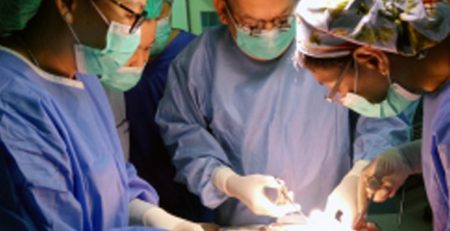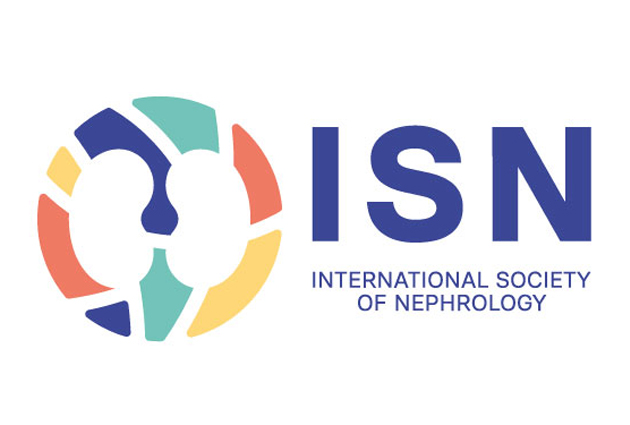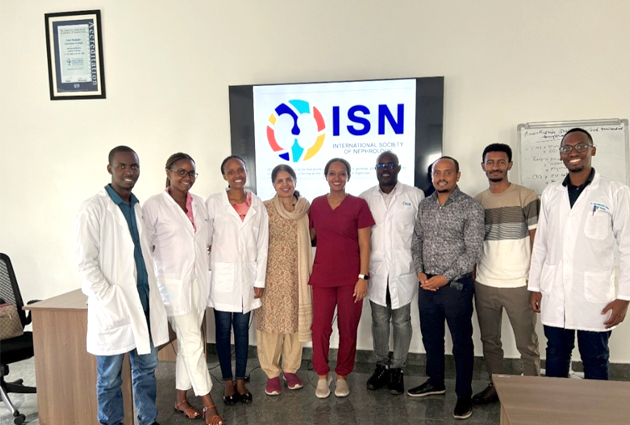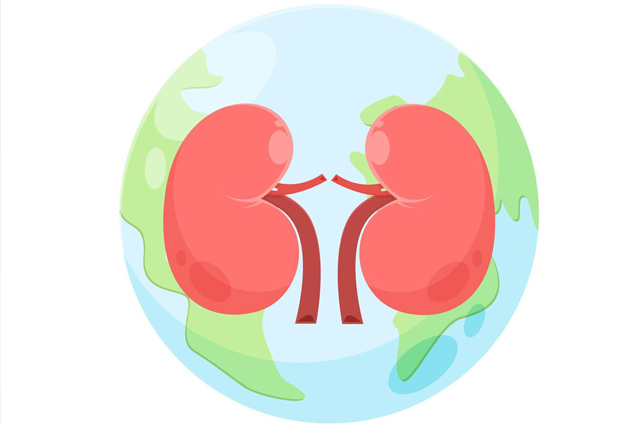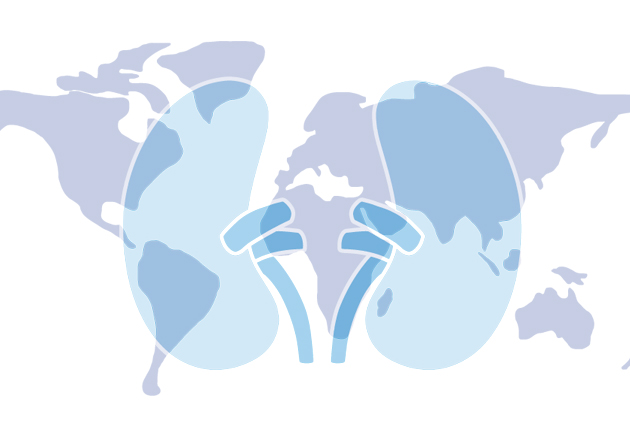CME in Tajikistan makes first step to advance nephrology training
An ISN Continuing Medical Education (CME) meeting was held in Dushanbe, the capital of Tajikistan on February 9 and 10, 2018. It opened doors to share nephrology knowledge between the nephrologists of Iran, Russia and Georgia with the local doctors and medical students as well as medical professionals from neighboring countries such as Kyrgyzstan and Uzbekistan, Belarus and Lithuania.
Shahrzad Ossareh, Head of the Hemodialysis Ward at Hasheminejad Kidney Center, Iran University of Medical Sciences and ISN councilor for the Middle East, started the two-day course by discussing the very basic topic of anatomy, histology and physiology of the kidneys. She was joined by Elena Zakharova from Russia, Irma Tchokhonelidze from Georgia and Samaneh Hashemi from Iran, who contributed their specific expertise to each session.
With 15 lectures the course covered a wide variety of topics ranging from histology, physiology and anatomy of the kidneys, renal syndromes and diagnostic methods, kidney pathology, and the definition, pathogenesis, diagnosis and treatment of acute kidney injury, chronic kidney disease and end-stage kidney disease as well as glomerulonephritis, urinary tract infections, tubulointerstitial nephritis, pregnancy and the kidney, hemodialysis and peritoneal dialysis.
The course was hosted by the head of Tajik Society of Nephrology, Ahtam Sadikov, in parallel with a local meeting focusing on nephrology and transplantation. Nephrologists of the latter meeting from Belarus, Kyrgyzstan and Lithuania joined the ISN CME and contributed to the program by presenting more topics.
After each session, there was up to an hour of questions and answers. Two onsite visits of public and private hospitals were also organized as part of the course, including some valuable patient case discussions.
Shahrzad Ossareh believes the meeting was quite successful in improving nephrology knowledge of the doctors and medical students of Tajikistan and the other participants from neighbouring countries. She noticed a lack of essential nephrology laboratory tests as well as kidney biopsy in the country. She says: ‘I hope that we can teach Tajik doctors more about kidney biopsy skills and train a number of nephropathologists to overcome this critical issue. Sending patients abroad for kidney biopsy, which is the current practice, is not affordable and convenient for many patients.’
A transplant program exists. However, with no basic insurance, many patients find both transplant and dialysis treatments challenging. Poor knowledge of the English language is also a barrier to training. Courses like this truly help doctors to access the knowledge that they need and to be inspired for seeking higher levels of education.
Many thanks to Ahtam Sadikov and the Tajik Society of Nephrology for hosting this ISN CME course. Particular thanks go to ISN President David Harris and ISN CME Chair Fred Finkelstein for supporting the creation of the program as well as Behrouz Broomand, who started educating Tajik doctors by holding a World Kidney Day event in Dushanbe in March 2016.
Dr. Ossareh adds: ‘I hope that we can continue our educational work in Tajikistan and also persuade Tajik nephrologists to apply for ISN Fellowships to make further advances in their nephrology science and practice’.
Find out more about the ISN Continuing Medical Education Program, HERE.




